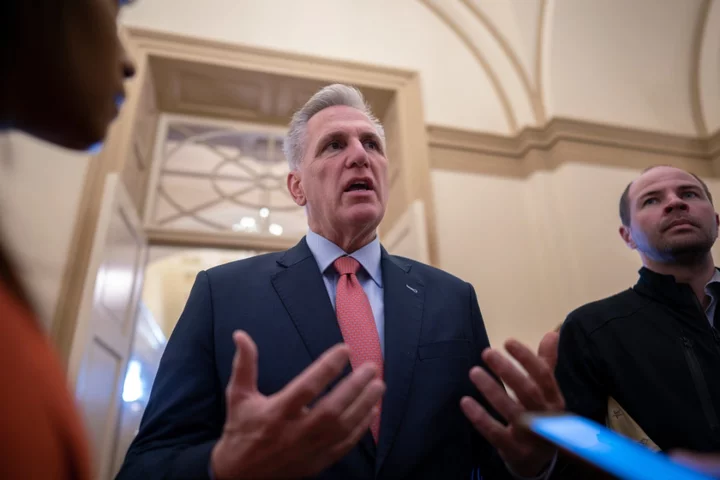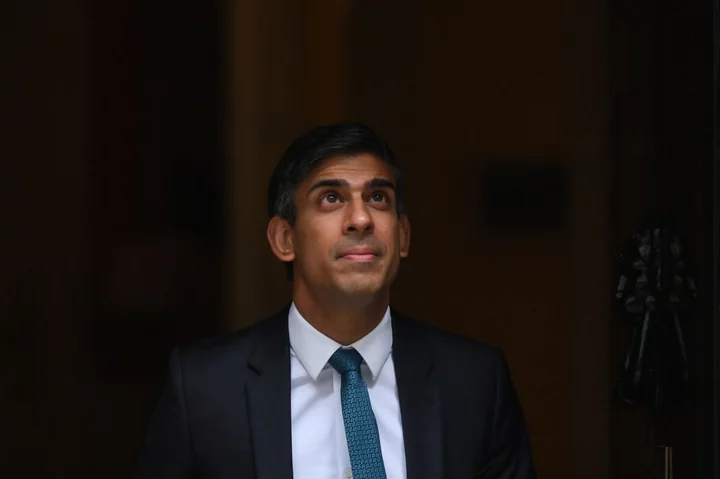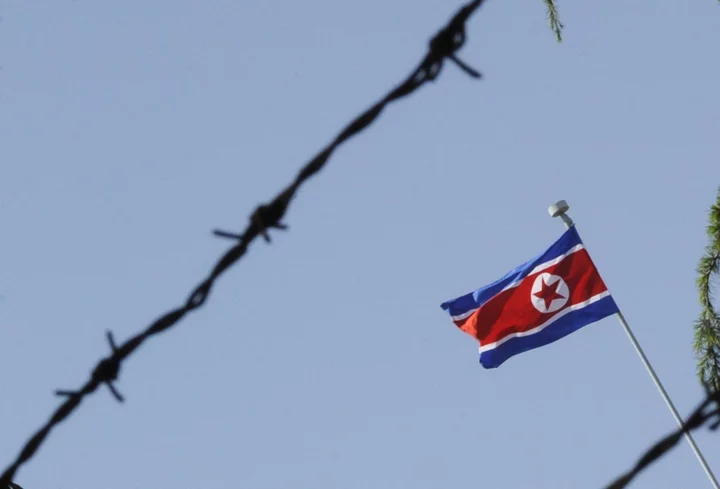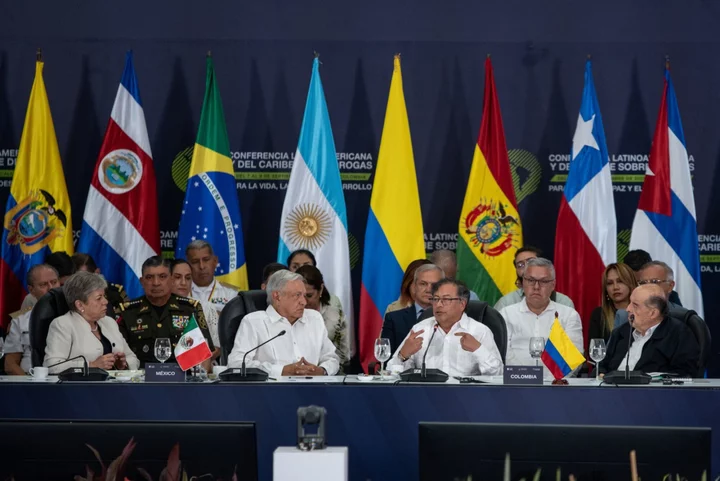US Secretary of State Antony Blinken blamed Hamas for the end of a week-long truce that saw dozens of hostages released from the Gaza Strip, as fighting intensified and Israel signaled it would widen its campaign in the territory’s south.
Blinken told reporters Hamas had gone back on promises to release some hostages and had fired rockets that killed civilians in Jerusalem while the cease-fire was still in place. Those remarks echoed similar claims from Israel, which had said Hamas didn’t free all the women it had vowed to let go.
“It came to an end because of Hamas,” Blinken told reporters in Dubai. He said Hamas had committed “an atrocious terrorist attack in Jerusalem” that killed three people and “reneged on commitments it made, in terms of releasing certain hostages.”
The top US diplomat’s remarks, made after his third trip through the region since Hamas fighters attacked Israel on Oct. 7, lent crucial support to Israel just as it resumed airstrikes in Gaza and signaled it was preparing to push deeper into the south.
That plan has prompted fears of an even deeper humanitarian crisis in Gaza, where the Hamas-run health authorities say more than 15,000 people have been killed and hundreds of thousands displaced. The biggest concern now is that civilians who fled fighting in the north will have nowhere to go as the airstrikes hit the south, especially with neighboring countries unwilling to offer refuge to those trapped in the conflict.
Israeli jets struck Hamas targets in Gaza soon after the cease-fire finished at 7 a.m. local time. The army also dropped leaflets on southern parts of the enclave, including around the city of Khan Younis, telling people to evacuate. It’s widely expected that the Israel Defense Forces will next send troops to that part of the strip. The bulk of Gaza’s roughly 2.3 million inhabitants have fled there since early October to escape fighting in the north.
Lebanese media said an Israeli strike killed two civilians in southern Lebanon, While Hamas’s armed wing said it fired rockets toward Tel Aviv “in response to the Zionist massacres against civilians.”
Earlier Friday, the Palestinian Islamist group accused the Israeli government of refusing all its hostage-exchange offers on Thursday night. By Friday night, the Palestinian Authority’s state news agency said 110 Palestinian civilians had been killed since the truce ended. It said Israel also struck a mosque near Rafah in the south.
Blinken said his latest trip to the region, which included a stop in Tel Aviv, was focused in part on urging Israel to put in place civilian protections as it presses ahead with the campaign to eradicate Hamas, designated a terrorist group by the US and European Union. He said another priority was coming up with a plan for Gaza after the war ends, “and how we can get on the path to a just, lasting and secure peace” for the region.
Earlier in the trip, Blinken had told Israel’s war cabinet that it must comply with international law once fighting resumes in Gaza, and said the devastation caused in the north should not be repeated in the south. Prime Minister Benjamin Netanyahu and other Israeli politicians had consistently said the war would resume at some stage and the truce would not become permanent.
“Our forces are charging forward,” Netanyahu said on Friday. “We continue to fight with all our might until we achieve all our objectives: the return of all our hostages, the elimination of Hamas, and ensuring that Gaza will never again pose a threat to Israel.”
The escalation of violence cut short the first pause since the war erupted on Oct. 7 with Hamas’s devastating attack on southern Israel, when the group killed 1,200 people attack and took around 240 back into Gaza. The truce led to dozens of hostages being freed and Israel releasing jailed Palestinian women and minors.
Under the cease-fire, Hamas freed around 10 hostages each day and Israel let roughly 30 prisoners out of jail. Hamas and other militant groups are thought to still be holding around 130 people in Gaza, though it’s unclear how many are soldiers and how many have died. Even as fighting resumed, mediators including Qatar said they hoped for another pause.
“Negotiations took place throughout the night to extend the truce, during which the movement offered to exchange prisoners and the elderly,” Hamas said in an earlier statement. “It also offered to hand over the bodies of those killed and detained as a result of the Israeli bombing.”
In addition to dropping leaflets in Arabic on southern Gaza, the IDF also said it would release a map for residents that would divide the whole territory into small zones. The army said it will issue instructions for each zone so residents know whether they need to leave their location.
The new round of hostilities will renew fears that the war could spread. Iran, which backs Hamas and Lebanon-based Hezbollah, blamed Israel and the US for the truce ending.
“Political and legal responsibility for the continuation of the aggression” lies with them, the Iranian foreign ministry said on X.
Tehran has for weeks warned of the risk of a broader conflict in the Middle East. Hezbollah is already involved in near-daily skirmishes with Israeli forces, while the Houthis in Yemen have fired missiles at Israel, most of which have been intercepted. The group seized an Israeli-owned cargo ship last month that it’s still holding.
Author: Courtney McBride, Fares Akram and Roy Katz









